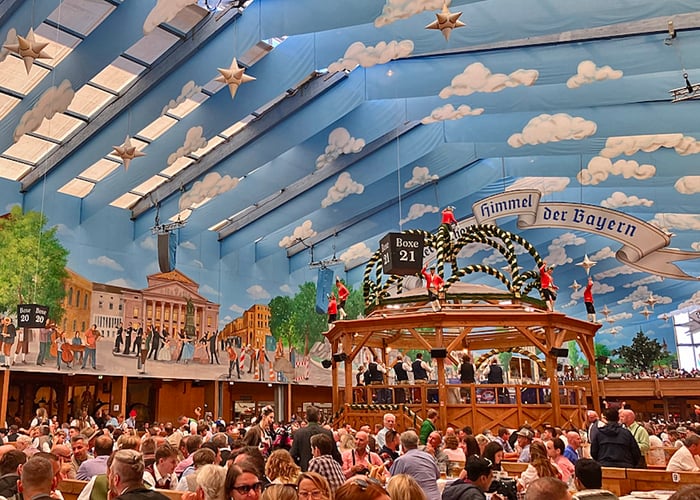
Germany Travel Guide:
Step into the world of Germany! All you need for planning your dream trip to Germany is right here. From important Germany travel tips, to a sample itinerary, and suggested destinations within Germany - Jetset Seeker has you covered!
Welcome to our Comprehensive Germany Travel Guide
Welcome to our Germany travel guide, your ultimate resource for exploring a land filled with castles, bakeries, history, and natural beauty! In this comprehensive Germany travel guide, we'll take you on a journey through charming cities, iconic historical sites, and stunning landscapes that define this culturally rich country. Whether you're embarking on your first trip or a returning traveler, our Germany travel guide provides all the essentials for planning an unforgettable adventure. So, prepare your bags and get ready to delve into the rich heritage and scenic marvels of Germany with our Germany travel guide!
Germany Travel Guide: The Lowdown
Germany Travel Guide: When to Visit
Curious about the optimal time to visit Germany? Below are our insights on what each season has in store for your unforgettable journey.
Winter: Christmas Markets & Winter Sports
Visiting Germany in winter offers a magical experience, highlighted by the enchanting Christmas markets that dot cities like Munich, Nuremberg, and Dresden. These markets showcase traditional food, mulled wine (Glühwein), and handcrafted gifts, creating a festive atmosphere. Additionally, winter sports enthusiasts can enjoy activities in the Bavarian Alps. However, tourists should be prepared for cold weather, shorter daylight hours, and potential holiday-related closures or adjusted schedules for some services and attractions. Overall, the allure of Germany's winter charm, especially during the Christmas season, makes it a worthwhile and memorable time to visit.
Spring: Springtime Blooms & Easter Markets
Visiting Germany in spring is a delightful experience marked by blooming landscapes, vibrant festivals, and pleasant weather. One of the highlights of this season is the celebration of Easter, with Easter markets selling colorful decorations, traditional treats like Easter eggs and pastries in cities such as Berlin, Hamburg, and Cologne. The countryside also comes alive with flowers, making it perfect for leisurely walks, bike rides, and drives along scenic routes like the Romantic Road (Romantische Straße). Additionally, spring offers milder temperatures and longer daylight hours, ideal for exploring Germany's numerous castles, gardens, and outdoor attractions. While springtime attracts more tourists compared to winter, it's still a favorable season with fewer crowds than summer, allowing for a more relaxed and enjoyable travel experience. However, travelers should be aware of potential rain showers and fluctuating weather conditions, so packing layers and waterproof clothing is advisable. Overall, Germany in spring offers a charming blend of cultural festivities, natural beauty, and comfortable weather, making it an excellent time to discover the country's diverse attractions.
Summer: Peak Season
Visiting Germany in summer presents an array of exciting opportunities and experiences amidst the warm and sunny weather. One of the highlights of the summer season is the abundance of outdoor festivals which showcase culture through music, food, and of course, beer. Additionally, summer is the perfect time to explore Germany's picturesque countryside, with lush landscapes, blooming gardens, and scenic hiking trails in regions like the Black Forest and Bavarian Alps. The longer daylight hours also allow for more time to visit historical landmarks, museums, and vibrant cities like Berlin, Hamburg, and Cologne, where outdoor cafes and cultural events thrive. While summer attracts more tourists, especially during the peak months of July and August, there are still plenty of opportunities to enjoy lesser-known attractions and hidden gems. Travelers should be prepared for warmer temperatures and occasional crowds at popular sites, but overall, Germany in summer offers a vibrant and lively atmosphere, making it an ideal season for unforgettable adventures and exploration.
Fall: Oktoberfest
Visiting Germany in the fall offers a unique and charming experience, particularly with the iconic Oktoberfest celebrations in Munich. This world-renowned festival showcases Bavarian culture with lively music, traditional outfits (called Trachten), and of course, plenty of delicious beer and food. Beyond Oktoberfest, fall in Germany is characterized by beautiful foliage, making it a wonderful time for scenic drives along the Romantic Road or hikes in the Harz Mountains. The crisp, cool weather also creates a cozy atmosphere, perfect for exploring historic towns, visiting castles, and indulging in hearty autumn dishes like schnitzel and sauerkraut. While fall attracts tourists, especially during Oktoberfest, it is generally less crowded than summer, allowing for a more relaxed and immersive travel experience. Travelers should be prepared for occasional rain showers and cooler temperatures, but overall, Germany in the fall offers a wonderful blend of cultural festivities, natural beauty, and hearty comfort food, making it a fantastic season to discover all that the country has to offer.
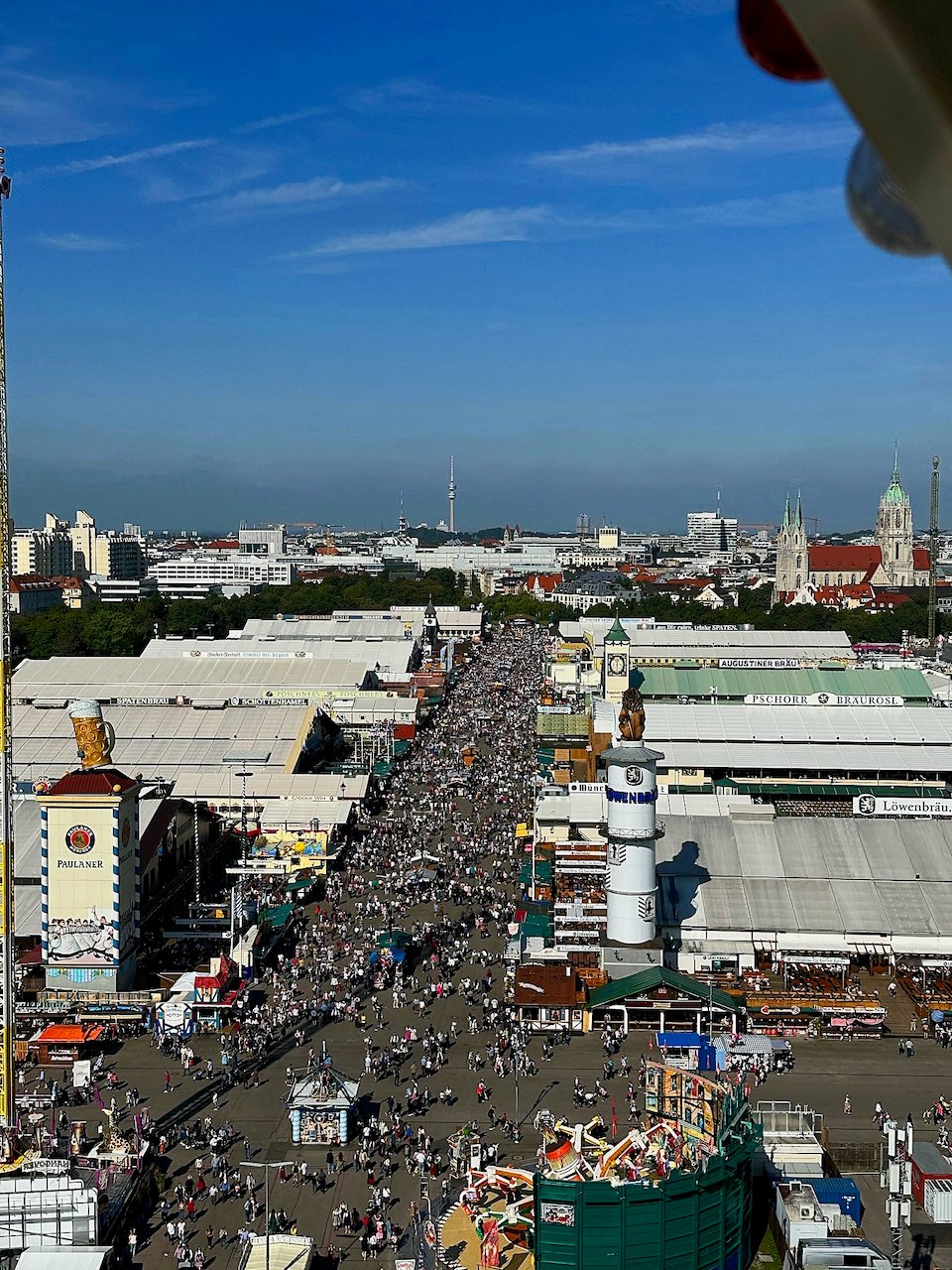
Germany Travel Guide: Money
Wondering about currency and money matters in Germany? Don't fret! Our guide has got you covered with all the essential information to navigate transactions smoothly during your travels.
Currency
Germany's currency is the Euro and it is denoted by the symbol €.
The Euro is used in 20 EU member countries: Austria, Belgium, Croatia, Cyprus, Estonia, Finland, France, Germany, Greece, Ireland, Italy, Latvia, Lithuania, Luxembourg, Malta, the Netherlands, Portugal, Slovakia, Slovenia, and Spain.
Euro banknotes come in denominations of €5, €10, €20, €50, €100, €200, and €500, each featuring architectural styles from different periods in European history. Euro coins are issued in denominations of 1 cent, 2 cents, 5 cents, 10 cents, 20 cents, 50 cents, €1, and €2. ATMs in Germany dispense an assortment of banknote denominations, with €10, €20, and €50 banknotes being the most common.
Keep Cash On Hand
While most shops, restaurants, museums, and taxis accept credit cards or mobile payment options (i.e., ApplePay and Google Pay), some street vendors, markets, small restaurants, and bars are cash-only in Germany. Additionally, it is not uncommon for stores and restaurants to only accept credit card if your purchase is over €20.
Cash & Oktoberfest
If you're planning to attend Oktoberfest, it's important to note that the festival tents operate on a cash-only basis. Payments for beer and food inside the main beer tents can only be made with cash; credit cards or other forms of payment are not accepted. There are ATMs on premise, but one of the ATMs ate our debit card, so we cannot in good faith recommend that you use them. Oktoberfest is also quite expensive. You can expect to pay around €15 per beer, so be sure to have plenty of cash with you. (Food costs varies from €2-3 for a pretzel, to up to €30 for something a bit heartier.) If you are planning on spending all day at Oktoberfest, we recommend bringing, at a minimum, €100 with you to cover your expenses for the day.
ATMs
ATMs are widely available in Germany, especially in urban areas and tourist destinations. They dispense Euro banknotes, and most accept international debit and credit cards. The most reputable ATMs are those operated by the larger banks in Germany. Look for ATMs operated by Deutsche Bank, Stadtsparkasse München, KT Bank, Commerzbank, Sparkasse, and Volksbank.
ATMs will almost always give you the best exchange rates. However, remember to hit decline if you want to accept the ATM's exchange rate. You are always better off with the current exchange rate that your home bank will give you.
Credit Cards
Credit cards are widely accepted throughout Germany. When accepted, you can typically use Visa, Mastercard and/or American Express.
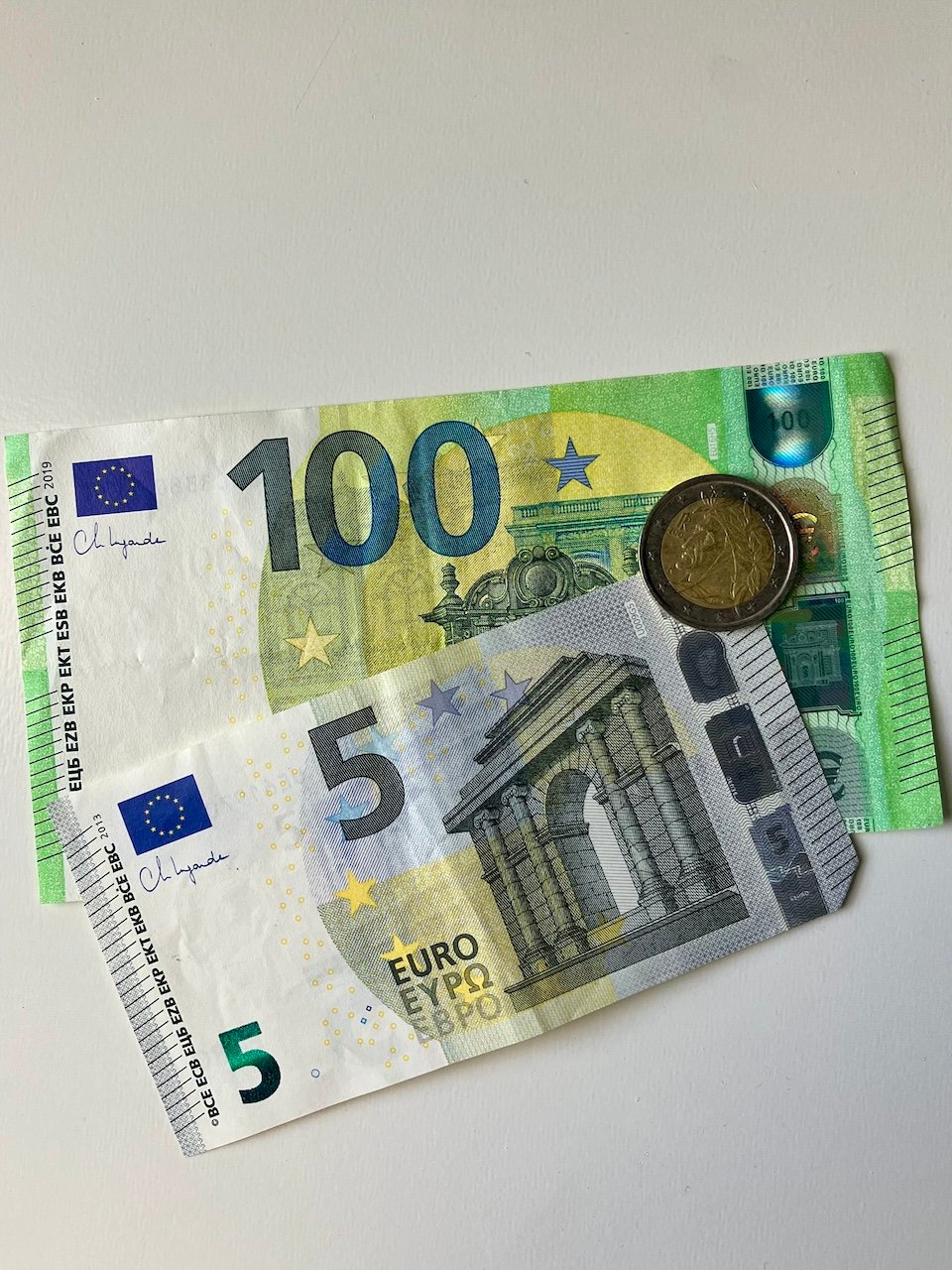
Germany Travel Guide: Language
Learning a few key words in the native language of the country you are visiting before your trip is always a meaningful gesture of respect for the people and country you are visiting. By making the effort to communicate in the local language, you demonstrate your appreciation for the culture and enhance your travel experience. To help you on your journey, here is a list of key words and phrases you should familiarize yourself with before traveling to Germany.
German Key Words & Phrases
Guten Tag (GOOT-en tahk) - Hello / Good Day
Auf Wiedersehen (Ouf VEE-der-zane) - Goodbye
Danke (DAHN-kuh) - Thank You
Entschuldigen Sie (ent-SHOOL-degen see) - Excuse Me
Bitte (BITT-uh) - Please / You're Welcome
Ja (yah) - Yes
Nein (nine) - No
Sprechen Sie Englisch? (SPRA-shun see ANG-lish) - Do you speak English?
Translation Apps
While traveling throughout Germany, you will find that most locals have decent proficiency in English, especially in the tourist-heavy areas. However, navigating menus or other texts may require translation assistance. During our travels, we found Google Translate, particularly its Google Lens feature within the app, to be invaluable. This tool facilitated seamless communication and comprehension. You can even pre-download the app and the German language pack for offline use, ensuring access even without WiFi or cellular data.
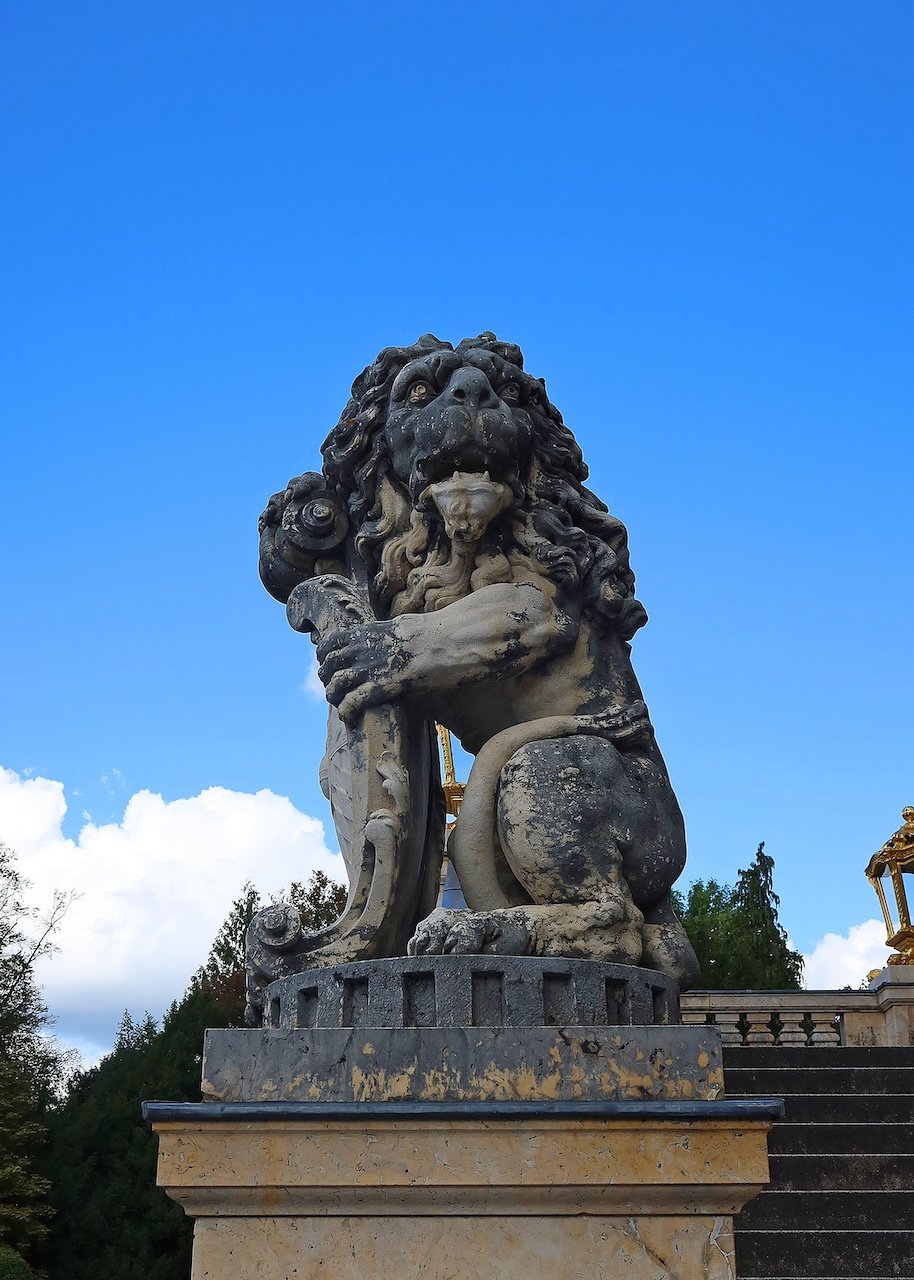
Germany Travel Guide: Shopping
Shopping in Germany offers a diverse and vibrant experience, with a wide range of products reflecting the country's rich culture and craftsmanship.
Popular Souvenirs:
Germany offers a wide variety of unique and artisan-made souvenirs that capture the essence of the country's heritage. Here are some of the most popular souvenirs from Germany:
- Beer Steins: Traditional German beer steins, often made of ceramic or glass, are popular souvenirs. They often feature intricate designs, historical motifs, or local landmarks, making them cherished collectibles.
- Cuckoo Clocks: Originating from the Black Forest region, cuckoo clocks are iconic symbols of German craftsmanship. These intricately crafted clocks feature wooden carvings, moving parts, and the signature cuckoo bird call at the top of each hour.
- Dirndls and Lederhosen: Traditional Bavarian clothing such as Dirndls (women's dresses) and Lederhosen (men's leather shorts) are popular souvenirs, especially during Oktoberfest and other cultural events. They come in various styles, colors, and designs.
- Christmas Ornaments: Germany is renowned for its handmade Christmas ornaments, including glass baubles, wooden decorations, and intricate figurines. These ornaments often reflect German Christmas traditions and can be cherished keepsakes.
- Wooden Nutcrackers: Handcrafted wooden nutcrackers, especially those depicting soldiers, kings, and fairy tale characters, are classic German souvenirs. They are commonly associated with the Christmas season but are available year-round.
- Chocolate and Marzipan: German chocolate, especially brands like Ritter Sport and Milka, are beloved treats. Marzipan, made from almonds and sugar, is another sweet delicacy often shaped into fruits or figures.
Tax-Free Shopping:
Tax-free shopping in Germany, known as VAT (Value Added Tax) refund, is available to non-EU residents who make purchases of goods to be exported outside the European Union within three months of the purchase date. Here are the key points about tax-free shopping in Germany:
- Participating Stores: Look for stores displaying a Tax-Free Shopping logo or ask the retailer if they participate in the tax-free shopping program. While not every retailer offers Tax-Free Shopping, you will find that the majority of upscale designer boutiques and department stores are part of the program.
- Minimum Purchase Amount: In Germany, the minimum purchase amount is €25. This minimum applies to a single purchase, per store.
- Tax-Free Shopping Process: When making a purchase, ask the store for a Tax-Free Shopping Form. Make sure to keep your receipts and the Tax-Free Shopping Form. You will need to have your passport with you for the store to complete a Tax-Free Shopping Form on your behalf. (Some stores will accept a copy of your passport, but this is not a guarantee.)
- Validation at Customs: Before departing the EU, you must get your Tax-Free Form validated by customs. Show your purchased items (which must be in the original packaging), receipts, and Tax-Free Form(s) at the customs desk located at the airport or border. This step is crucial and should be performed at your final EU departure point. For example, should you purchase a nutcracker in Germany but then travel to Paris before flying back home, the process of getting your Tax-Free Form officially stamped by customs must take place in France.
- Global Blue, Planet Tax Free, & Other Tax-Free Companies: Global Blue and other tax-free companies facilitate the VAT refund process. The company that you need to provide your Tax-Free Form to after it has been validated should be clearly stated on your paperwork. You will need to provide them with your completed form, show your passport, and provide your contact information when processing the refund. Should you find yourself in a situation where mailing your Tax-Free Form becomes necessary, do not forget to take photos of all paperwork, including receipts, prior to mailing them off. Refunds processed via mail may take anywhere from 4-8 weeks, if not longer to be received.
- Refund Process: After customs validation, you can receive your refund in cash immediately, or opt for a credit card refund, which typically processes within 3 to 5 days. The cash can be offered in both Euros and your home currency. Be sure to ask if any additional fees apply before selecting your choice of refund.
It's important to note that not all purchases are eligible for VAT refunds, such as services and consumables. Additionally, there may be administrative fees deducted from your refund, so it's advisable to inquire about any potential charges before completing the tax-free shopping process. More information about tax-free shopping can be found on the European Union website.
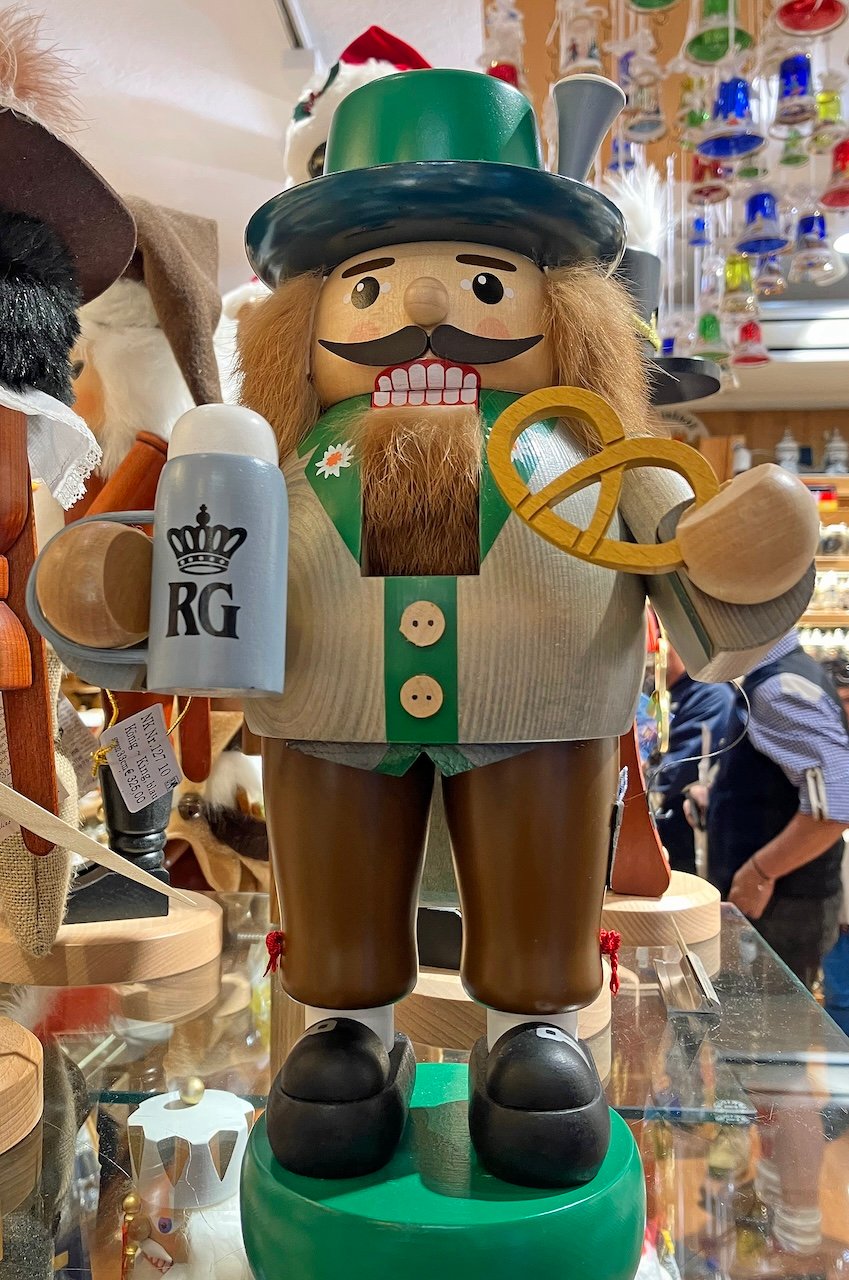
Germany Travel Guide: Airports
Main Airports
Germany has eight main, international airports that tourists frequent:- Frankfurt Airport (FRA): Located in Frankfurt (Hesse), Frankfurt Airport is the busiest airport in Germany and one of the busiest in Europe in terms of passenger traffic. It serves as a major hub for Lufthansa, Germany's flagship carrier, and offers connections to numerous destinations worldwide.
- Munich Airport (MUC): Situated in Munich (Bavaria), Munich Airport is the second-largest airport in Germany and serves as a key hub for international flights, especially to destinations in Europe, Asia, and North America. It is also a major hub for Lufthansa.
- Berlin Brandenburg Airport (BER): Berlin Brandenburg Airport is the primary airport serving the capital city of Berlin. It replaced the former Berlin Tegel Airport (TXL) and Berlin Schönefeld Airport (SXF) as the main airport for Berlin's commercial flights.
- Düsseldorf Airport (DUS): Located in Düsseldorf (North Rhine-Westphalia), Düsseldorf Airport is an important international airport in western Germany, serving as a hub for Eurowings and a focus city for several other airlines.
- Cologne Bonn Airport (CGN): Situated in Cologne, North Rhine-Westphalia, Cologne Bonn Airport is a major airport in western Germany, serving both domestic and international flights. It is a hub for low-cost carriers like Eurowings.
- Hamburg Airport (HAM): Hamburg Airport is the primary airport serving the city of Hamburg in northern Germany. It offers domestic and international flights and serves as a base for Eurowings and a focus city for other airlines.
- Stuttgart Airport (STR): Located in Stuttgart (Baden-Württemberg), Stuttgart Airport is an important airport in southern Germany, serving domestic and international flights. It is a hub for Eurowings and a focus city for several other airlines.
- Hannover Airport (HAJ): Hannover Airport serves the city of Hanover in Lower Saxony and is a major airport in northern Germany, offering domestic and international flights.
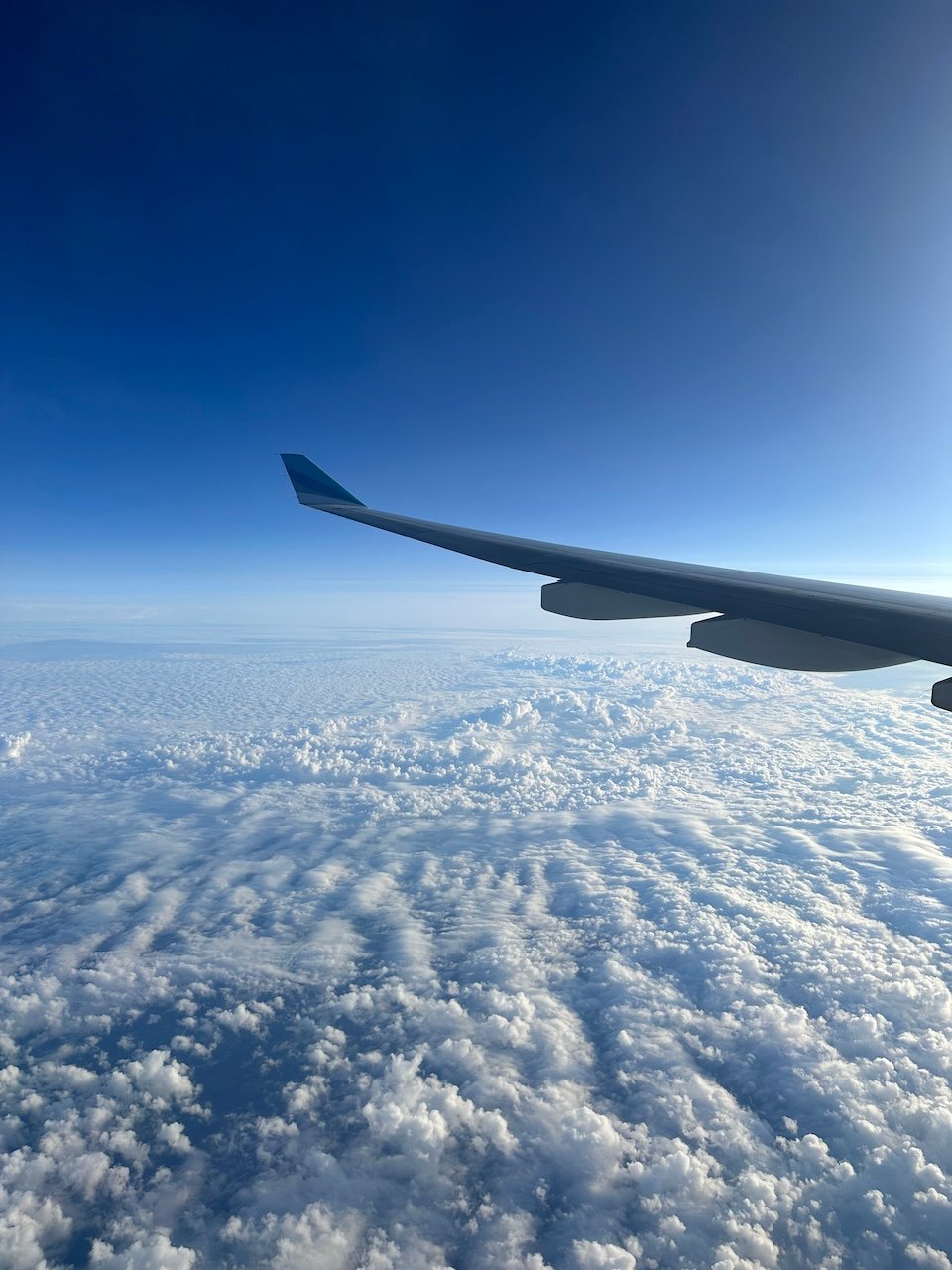
Germany Travel Guide: Trains
Germany has an extensive and efficient railway system that is well-known for its punctuality, speed, and coverage.
- Deutsche Bahn (DB): Deutsche Bahn is the primary railway operator in Germany, offering a comprehensive network of intercity, regional, and local train services. It operates high-speed trains (ICE, Intercity-Express) for long-distance travel and regional trains (RE, RB) for shorter routes within regions.
- High-Speed Trains (ICE): ICE trains are the flagship service of Deutsche Bahn, providing fast and comfortable travel between major cities such as Berlin, Munich, Frankfurt, Hamburg, and Cologne. These trains offer amenities like onboard dining, Wi-Fi, power outlets, and spacious seating.
- ÖBB Nightjet Trains: The ÖBB Nightjet trains are an overnight train service operated by ÖBB (Austrian Federal Railways) that connects major cities across Europe, providing comfortable and convenient overnight travel options. ÖBB Nightjet trains operate in Germany, connecting various German cities with other destinations across Europe. These trains provide overnight travel options between Germany and countries like Austria, Switzerland, Italy, Netherlands, and more. Major German cities such as Munich, Berlin, Hamburg, and Frankfurt are part of the Nightjet network, offering travelers a convenient and comfortable way to reach their destinations while enjoying the experience of overnight train travel. More information about ÖBB Nightjet trains can be found on the Nightjet website.
- Rail Passes: Travelers visiting Germany can consider using rail passes like the Eurail Pass or German Rail Pass, which offer unlimited travel on Deutsche Bahn trains for a specified duration. These passes are cost-effective for those planning multiple train journeys within Germany or across Europe.
- Tickets: Passengers can purchase tickets for German trains online, at stations, or through various mobile apps. We highly recommend securing your tickets ahead of time, particularly for long-distance and high-speed trains during peak travel periods. We also advise paying for seat reservations on German trains, so you are guaranteed to have a seat, even during busy times. Our preferred method for booking train tickets in Germany is through Rail Europe. The Rail Europe website simplifies the booking process by allowing you to book your tickets in English, plus, you can easily view train schedules and route options. Rail Europe charges a minimal booking fee of $8.45.
German trains are not nearly as punctual as other trains in Europe, with nearly one-third of German trains delayed in 2023. However, trains are still the most efficient (and environmentally friendly) way to get around Germany and visit neighboring countries, like Austria, Belgium, and France.
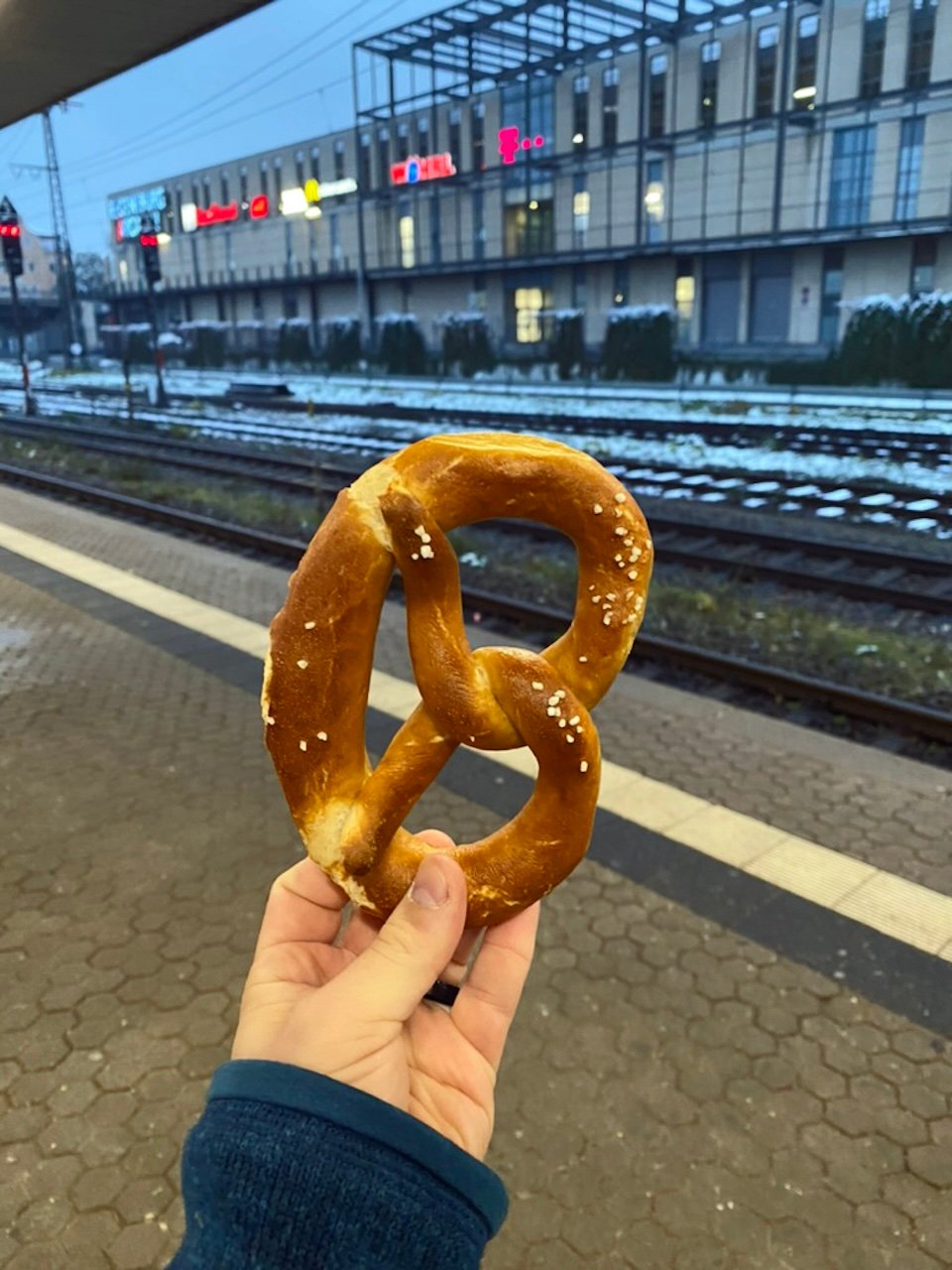
Germany Travel Guide: Additional Information
Sunday Closures
In Germany, Sunday closures are governed by strict Sunday shopping laws, resulting in the closure of most retail stores, supermarkets, and department stores on Sundays and public holidays. Exceptions exist for shops in certain locations such as train stations, airports, tourist areas, and gas stations, which may have limited hours on Sundays. However, restaurants, cafés, bakeries, museums, tourist attractions, and public transportation services typically remain open on Sundays, offering visitors opportunities for dining, sightseeing, and cultural experiences. It is advisable for tourists to plan their activities accordingly, stocking up on essentials before Sunday closures and taking advantage of open attractions and leisure activities during their visit.
Tipping Culture
Bars & Restaurants
Tipping is more common in Germany than other countries in Europe. Tipping in Germany is seen as a gesture of appreciation for good service rather than an obligation. While it is not mandatory to leave a tip, leaving a tip for satisfactory service is considered polite and is welcomed by service providers.
Tipping in restaurants, cafés, and bars is common - especially when paying with cash. Most guests will usually round-up the bill or leave a small amount as a tip. For example, if your bill is €4,50, you might round up to €5.
Taxis
Tipping taxi drivers is not mandatory, but it is common practice to round up the fare or add a small tip as a token of appreciation for good service.
Oktoberfest
Tipping at Oktoberfest follows similar customs to tipping in Germany in general. Here are some guidelines specific to Oktoberfest:
In Beer Tents: When buying beer or food inside the beer tents, it's customary to round up the bill. Many times, the waitstaff will do this automatically. If you're expecting change, be sure to communicate your preference.
Bathroom Attendants: Some beer tents have attendants in the restrooms who may provide amenities like towels or mints. It's customary to leave a small tip, such as a €1 coin, for their services.
Electrical Outlets & Voltage
In Germany, the outlets are Type C and Type F, with Type F being the most common. Type C outlets feature two round pins, while Type F outlets include two round pins and a grounding clip. The standard voltage in Germany is 230 volts, with a frequency of 50 hertz (Hz). This voltage is compatible with most electronic devices and appliances used in Europe. Travelers coming from the United States and Canada will need a plug adapter but typically do not require a voltage converter to use German outlets, as many modern devices are designed to handle different voltages. If you are concerned about using one of your devices in Germany, double-check to see if it is rated as "dual voltage" which indicates that it was designed to be used in both North America and Europe.
Travelers from countries with different plug types, such as Type A (North American) or Type G (British), will need a plug adapter to use their devices in Germany. Additionally, devices designed for lower voltages (i.e., 110-120 volts) that are not rated "dual voltage" may require a voltage converter to avoid damage when used in Germany.
Cellular Data & WiFi
Most hotels and public places, like museums, in Germany offer free WiFi. However, if you need service on the go you have a couple of options. (1) Consider purchasing a SIM card upon arrival. Prepaid SIM cards are inexpensive and can be purchased at most airports. (2) Purchase an eSIM before you depart. We often opt for eSIMs from Airalo when we travel internationally. You can purchase a 5 GB plan valid for 30-days for $20.00 USD. Airalo offers both country-specific eSIMs and regional eSIMs, like Eurolink for Europe which provides coverage in 39 countries. The eSIMs from Airalo are limited to data only; however, this still allows you to communicate via WhatsApp, easily get directions, utilize Google Translate, and surf the web.
••••••••••••••••••••••
Get $3 off your first eSIM data pack from Airalo. Use code LAUREN5219 when you sign up or apply it at checkout. https://ref.airalo.com/mk72 (To be fully transparent, when you use our referral code, we also get a $3 credit for Airalo.)
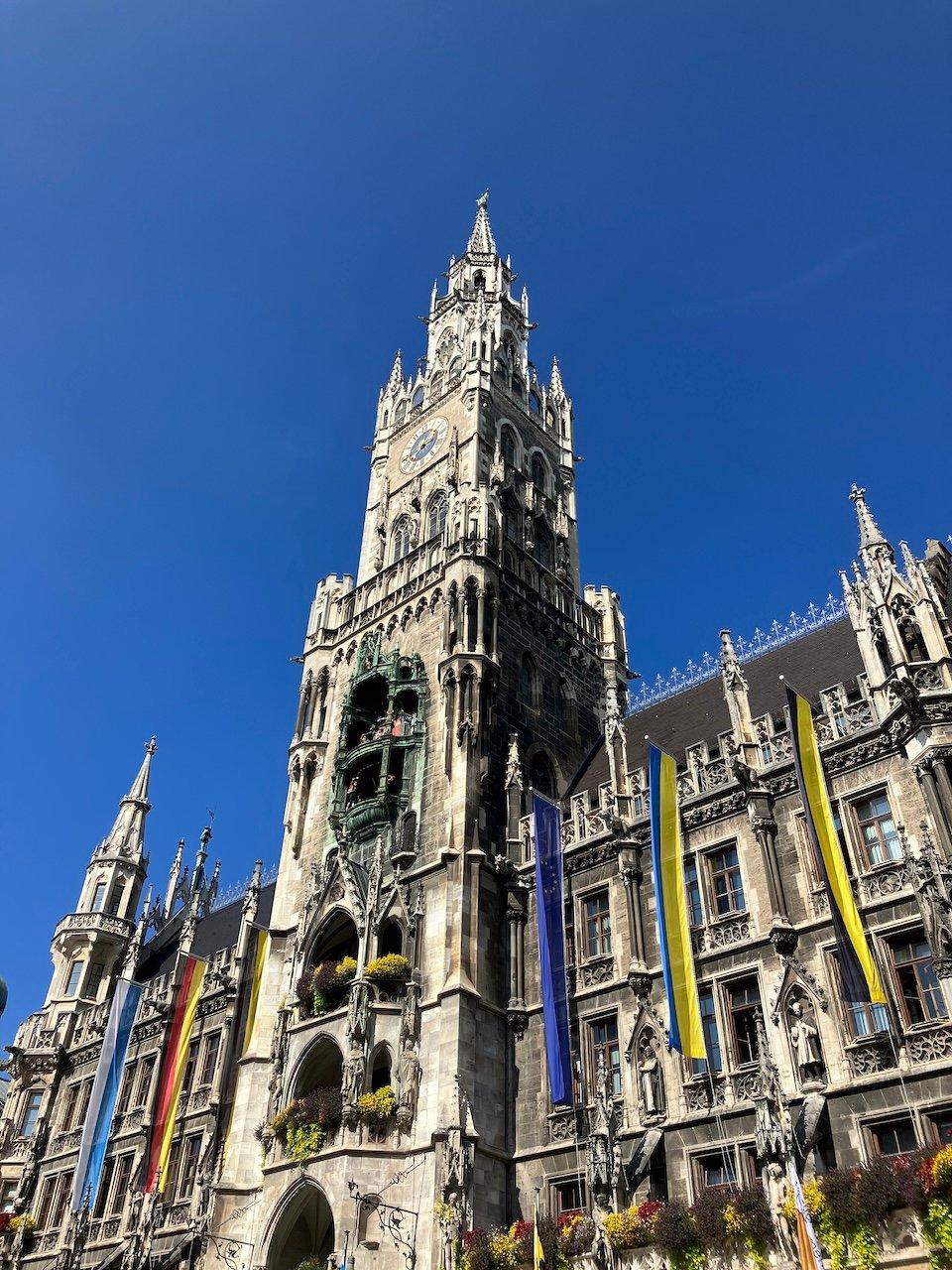



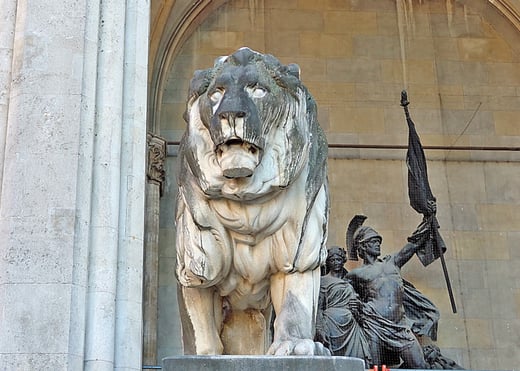
Our 6-Day Munich Itinerary
Alongside our comprehensive Germany travel guide, we offer a sample itinerary crafted from our own experiences which we are sharing to help inspire your own travel plans! Feel free to use it as a starting point for crafting a memorable trip to Munich. We've included highlights, must-visit attractions, and recommendations based on our firsthand experiences to ensure you make the most of your time in this captivating country.
Trip Summary:
-
 5 Nights
5 Nights
-
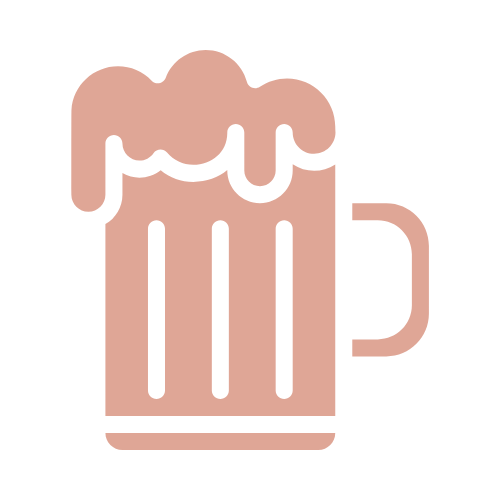 2 Days at Oktoberfest
2 Days at Oktoberfest
-
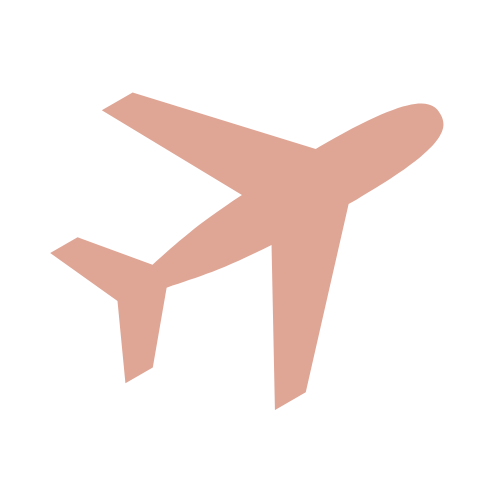 Flight into Munich International (MUC)
Flight into Munich International (MUC)
-
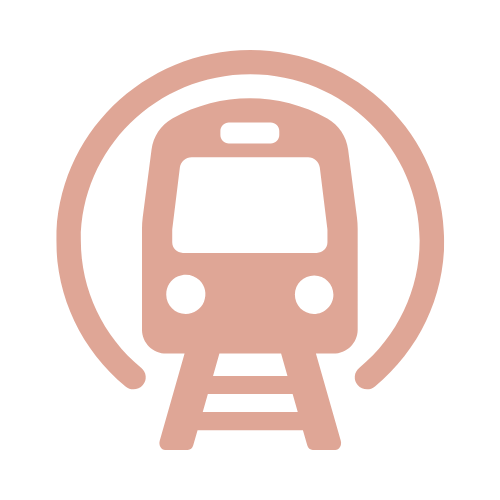 Train to Austria
Train to Austria
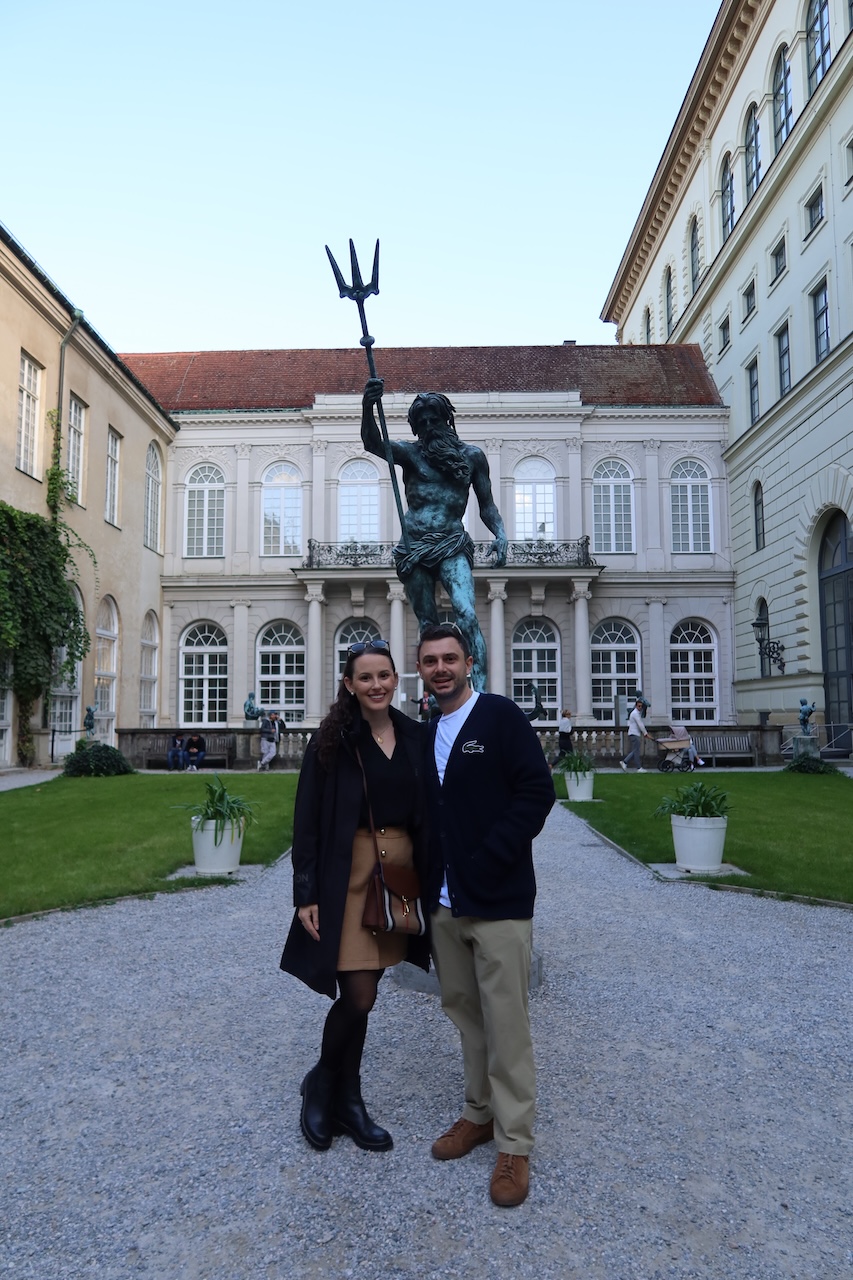
Our thoughts on Germany
During our time in Germany, we had an absolute blast at Oktoberfest in Munich. The lively atmosphere, traditional Bavarian music, delicious beer, and vibrant celebrations made it an unforgettable experience. We also thoroughly enjoyed sightseeing in Munich, exploring its historic landmarks, beautiful parks, and cultural attractions.
While we had a fantastic time overall, we must admit that we were not particularly impressed with the food in Germany. While the cuisine did not align with our tastes, German bakeries were the exception to our experience. German bakeries offered fresh pastries and breads that were truly a delicious highlight of our trip. On a positive note, we found Germany's public transportation system to be incredibly efficient and easy to navigate, which made exploring cities a breeze.
Looking ahead, we are already planning our return trip to Germany. We are eager to visit other captivating places such as Berlin, known for its rich history and vibrant arts scene, and Neuschwanstein Castle, a fairytale-like landmark nestled in the Bavarian Alps. Additionally, we are excited about the prospect of visiting Cologne during Christmas time to experience their renowned Christmas markets and immerse ourselves in the festive holiday spirit. Germany has so much more to offer, and we cannot wait to explore it further on our next adventure.
Our Germany Travel Guides

Munich
Munich, Bavaria's capital, captivates visitors with its blend of historic charm, dynamic cultural offerings, and world-famous festivals like Oktoberfest.
%20(1).png?width=3690&height=2079&name=Jetset%20Seeker%20Logo%20(Banner)%20(1).png)

